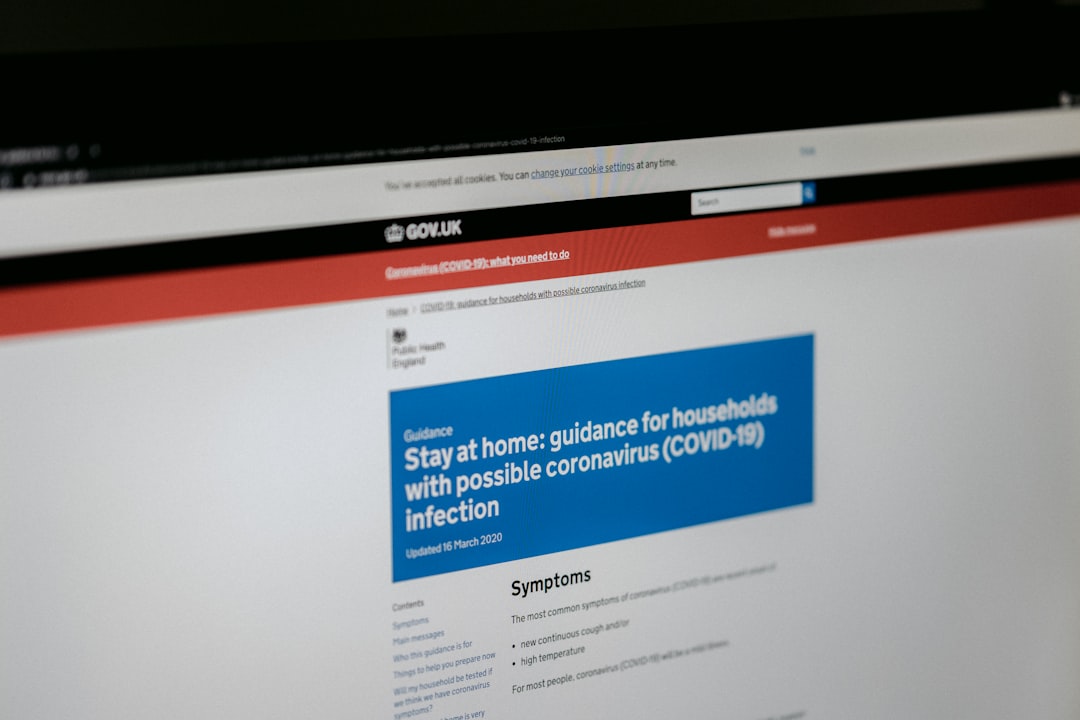Manipulation is a controlling behavior that can be damaging and tough to overcome, often leaving people feeling powerless. However, have you ever wondered what the word of God has to say about manipulation? This article will shed light on the topic from the biblical perspective along with examples, insights, and ways to recover. If you’re struggling with manipulative behaviors or know someone who is, read on to learn more.
Manipulation through the Bible: An Overview
As a Christian, it’s important to understand what God’s word has to say about manipulation. Manipulation is when someone tries to control or influence your behavior to their own benefit, often through deceptive or deceitful behavior. It can take many forms, including psychological abuse, emotional manipulation, and spiritual abuse. In this section, we’ll take an overview of what the Bible says about manipulation and how we can use God’s word to recognize and avoid manipulative behavior.

Here are some key points to consider:
Manipulation is not from God:
One thing that’s clear from the Bible is that manipulation is not from God. It’s a tactic of the enemy, used to deceive and control others. In John 8:44, Jesus refers to Satan as “the father of lies,” reminding us that the enemy’s goal is to “steal, kill, and destroy” (John 10:10). Therefore, it’s essential that we stay grounded in God’s word and be vigilant against the tactics of the enemy.God values honesty and transparency:
Another key principle we can find in the Bible is the importance of honesty and transparency. Proverbs 12:22 says, “Lying lips are an abomination to the Lord, but those who act faithfully are his delight.” Similarly, Ephesians 4:25 says, “Therefore, having put away falsehood, let each one of you speak the truth with his neighbor, for we are members one of another.” As Christians, we are called to live lives of integrity, being truthful in all our relationships.Manipulation harms relationships:
Manipulation is fundamentally harmful to relationships. It creates a power dynamic that ultimately undermines trust and intimacy. Therefore, it’s important to recognize manipulative behavior and set healthy boundaries with those who engage in it. In 2 Timothy 3:1-5, Paul warns against people who are “lovers of themselves, lovers of money, proud, arrogant, abusive, disobedient to their parents, ungrateful, unholy, heartless, unappeasable, slanderous, without self-control, brutal, not loving good, treacherous, reckless, swollen with conceit, lovers of pleasure rather than lovers of God.” These are the people he says to avoid, and it’s important to take this advice to heart when dealing with manipulative individuals.God offers a path to healing:
Lastly, it’s important to remember that God offers a path to healing and restoration for those who have been impacted by manipulation. Through prayer, reading God’s word, and seeking wise counsel, we can find the strength and guidance we need to overcome the effects of manipulative behavior. As Jesus says in Matthew 11:28-30, “Come to me, all who labor and are heavy laden, and I will give you rest. Take my yoke upon you, and learn from me, for I am gentle and lowly in heart, and you will find rest for your souls. For my yoke is easy, and my burden is light.”
In summary, the Bible is clear that manipulation is not from God and is ultimately harmful to relationships. By staying grounded in God’s word and seeking wise counsel, we can recognize and overcome manipulative behavior and find the path to healing and wholeness that God offers us.

Understanding the Psychology of Manipulation
Manipulation is a deceitful behavior that often involves the use of lies, flattery, and fear to gain control over someone. It is prevalent in our daily lives, and we encounter it in our personal relationships, at work, and even in our spiritual lives. As Christians, it’s essential to understand the psychology of manipulation and how it affects our spiritual wellbeing.
Manipulators often use psychological manipulation techniques to gain control over others. One of the most common techniques is gaslighting, which involves distorting the truth and making the victim doubt their perception of reality. Another technique is emotional manipulation, which involves using emotions to exploit someone. It could be done by using guilt, fear, or playing the victim to gain control over someone.
Understanding the psychology of manipulation is not always easy. Still, it is vital to our spiritual wellbeing as it can help us recognize manipulative tactics and protect ourselves from toxic behavior. As Christians, it’s important to develop healthy boundaries that safeguard our emotional, physical, and spiritual health. It enables us to stay true to our beliefs and values and not allow others to manipulate us into doing something that goes against them.
When dealing with manipulators, it’s important to remember that their behavior is not our fault. Often, manipulators will blame you for their actions or convince you that you’re the one responsible for their behavior. However, it’s important to stay true to our beliefs and values and not allow others to control us through fear or guilt.
Additionally, it’s important to recognize that some forms of manipulation can be considered abusive. Psychological abuse and emotional manipulation can lead to long-term mental health problems and affect our spiritual wellbeing. As Christians, it’s important to seek help if we find ourselves in an abusive relationship. It could mean seeking therapy, talking to a trusted religious leader, or seeking support groups that can offer practical and spiritual support.
In conclusion, understanding the psychology of manipulation is crucial to our spiritual wellbeing as Christians. It helps us recognize manipulative tactics and develop healthy boundaries that protect us emotionally, physically, and spiritually. By staying true to our beliefs and values, we can avoid toxic behavior and focus on building healthy relationships with ourselves and others. Remember, seeking help is not a sign of weakness but a brave step towards healing and wholeness.
Scripture on Manipulation: Examples and Interpretations
When it comes to manipulation, the Bible has much to say. Scripture on manipulation can be found in both the Old and New Testaments, and provides us with guidance on how to recognize and combat this toxic behavior.
Here are a few examples:
- Proverbs 26:24-25 – “People may cover their hatred with pleasant words, but they’re deceiving you. They pretend to be kind, but don’t believe them. Their hearts are full of many evils.”
This verse warns us about people who use smooth words and flattery to gain our trust and manipulate us. It reminds us to be discerning about people’s true motivations.
- James 3:16 – “For where jealousy and selfish ambition exist, there will be disorder and every vile practice.”

This verse shows us that manipulation often stems from a place of selfishness and jealousy. When we put our own desires above others, we are more likely to resort to manipulative tactics.
- Matthew 5:37 – “Let what you say be simply ‘Yes’ or ‘No’; anything more than this comes from evil.”
This verse teaches us the value of honesty and integrity in our words. Manipulators often use elaborate stories and half-truths to deceive and control others. Being truthful and straightforward can help combat this destructive behavior.
It’s important to note that these verses should not be used as weapons to control or manipulate others. Instead, they should be seen as tools to help us recognize unhealthy behavior and strive for healthy relationships.
As believers, we are called to treat others with love and respect, and to honor God in all that we do. Manipulation goes against these values and can cause harm to ourselves and others.
In the next section, we will explore how manipulation can manifest in toxic and abusive relationships and the steps that can be taken to recover from its effects.
Manipulation in Toxic and Abusive Relationships
Manipulation is a common tactic used in toxic and abusive relationships, leaving the victim feeling powerless, confused, and often questioning their own reality. It can take many forms, such as emotional manipulation, psychological abuse, and spiritual abuse. Unfortunately, the reality is that manipulation is present in many relationships and can be challenging to identify.
The Bible speaks about unhealthy control and abusive behavior, promoting a biblical perspective for healthy relationships. In Proverbs 22:24-25, the scripture warns us not to associate ourselves with people who are easily angered, hot tempered or violent, and in 1 Corinthians 5:11, Paul advises us to avoid believers who are immoral or greedy and foolish. In both cases, the message is clear – recognize unhealthy behavior and remove yourself from the influence of those who demonstrate it.
Manipulative tactics can be detrimental to your spiritual wellbeing and harm your relationship with God. It’s important to recognize manipulation’s presence and address it in a way that aligns with God’s word. In Ephesians 5:11, the scripture encourages us to expose deceitful behavior. By calling out manipulative tactics in a respectful and honest manner, we can set healthy boundaries while providing opportunities for change and healing in our relationships.
It’s essential to remember that recovery from manipulation takes time, effort, and patience. The victim will need to seek help from trusted individuals, including mentors, therapists, pastors, or support groups who can provide guidance and support. Regular prayer and reflection on God’s word can help the victim gain a biblical perspective while building healthy relationships based on mutual trust, respect, and understanding.
In closing, manipulation is a toxic behavior that can harm both the victim and the manipulator. The Bible speaks about being aware of abusive behavior and removing oneself from its influence. Recovering from manipulation takes time and requires a commitment to building healthy relationships based on mutual trust, respect, and understanding. Remember that through prayer and support, it is possible to overcome manipulative tactics and thrive in Christ-centered relationships.

Recovering from Manipulation: The Path to Healing and Wholeness
If you have recently been in a manipulative relationship, it is important to know that healing and wholeness are possible. However, recovery can take time and effort. Here are some steps to help you recover from manipulation:
Acknowledge the manipulation: The first step in recovering from manipulation is acknowledging that it happened. It can be difficult to accept that someone you trusted was manipulating you, but it is important to face the truth.
Set healthy boundaries: Setting healthy boundaries is crucial to your recovery. It is important to identify what you are and are not willing to tolerate in a relationship. Communicate your boundaries clearly and stick to them.
Seek support: It is essential to seek support from people you trust. This could be a close friend, family member, or a therapist. Talking about the manipulation and how it has affected you will help you process your feelings.
Focus on your own needs: When you have been manipulated, it is common to lose sight of your own needs. It is important to take time for yourself and prioritize self-care. Focus on activities that bring you joy and fulfillment.
Educate yourself: Educate yourself on healthy relationships and what to look for in a partner. This will help you make better decisions in your future relationships.
Forgive yourself: It is important to forgive yourself for any mistakes you may have made in the relationship. Forgiveness is a process, and it takes time. Be patient and kind to yourself.
Recovering from manipulation is not easy, but it is possible. Healing is a process that takes time, so be patient with yourself. Remember that you are not alone, and it is okay to ask for help. With the right support and mindset, you can move forward and create healthy relationships.
The Role of Faith in Overcoming Manipulative Tactics
When dealing with manipulation, it can be easy to feel powerless and overwhelmed. However, as people of faith, we have a powerful tool at our disposal: god’s word. By turning to the Bible for guidance, we can find strength and wisdom to overcome manipulative tactics and live healthy, fulfilling lives.
One of the most important aspects of using scripture to combat manipulation is understanding the difference between healthy and unhealthy control. God calls us to love and serve one another, but true love does not seek to control others or manipulate their behavior. As it says in Galatians 5:13, “For you were called to freedom, brothers. Only do not use your freedom as an opportunity for the flesh, but through love serve one another.”

In order to guard ourselves against toxic and manipulative behavior, we must also learn to recognize the signs of emotional and psychological abuse. This means setting healthy boundaries and learning to say no when someone is trying to control us. The Bible has much to say about the importance of boundaries and standing up for oneself. For example, in Proverbs 22:3 it says, “The prudent sees danger and hides himself, but the simple go on and suffer for it.”
Another key component of overcoming manipulation is developing a strong sense of self-esteem and identity in Christ. When we understand our worth and value as children of God, we are less likely to be swayed by the opinions of others or coerced into doing things we don’t want to do. As it says in 1 Peter 2:9, “But you are a chosen race, a royal priesthood, a holy nation, a people for his own possession, that you may proclaim the excellencies of him who called you out of darkness into his marvelous light.”
Of course, overcoming manipulation is not always easy, and it may require seeking outside help in the form of therapy or counseling. However, by connecting with others who share our faith and supporting one another through prayer and fellowship, we can find the strength to overcome even the most insidious forms of psychological manipulation. As it says in Ecclesiastes 4:9-10, “Two are better than one, because they have a good reward for their toil. For if they fall, one will lift up his fellow. But woe to him who is alone when he falls and has not another to lift him up!”
In conclusion, faith can be a powerful tool for overcoming manipulative tactics and living a healthy, fulfilling life. By understanding the difference between healthy and unhealthy control, recognizing the signs of emotional and psychological abuse, setting healthy boundaries, developing a strong sense of self-esteem and identity in Christ, and seeking help when necessary, we can overcome even the most difficult challenges and find peace and wholeness in our relationships with others and with God.














